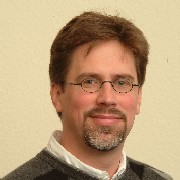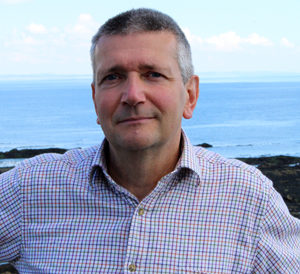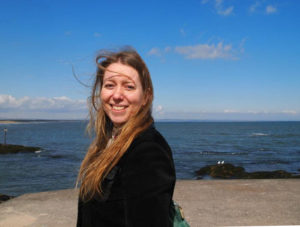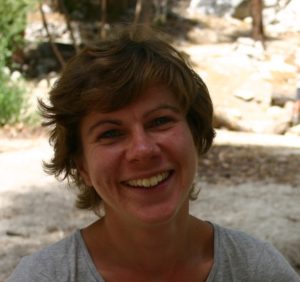 Dr. J F M Clark
Dr. J F M Clark
BA (Western Ontario) MA (Toronto), DPhil (Oxon)
Director of the Institute for Environmental History and Lecturer in Modern History.
Background
After completing a BA (Hons) in History at the University of Western Ontario and an MA in History at the University of Toronto, I earned a DPhil in Modern History from the University of Oxford. Funded by the Social Sciences and Humanities Research Council of Canada, I engaged in two further years of postdoctoral research at the University of Oxford before assuming a Wellcome Lectureship in the History of Medicine and Life Sciences at the University of Kent at Canterbury. I subsequently took up an appointment at the School of History at the University of St Andrews, where I became director the Institute for Environmental History.
Research
Dr Clark’s research has principally focused on nineteenth- and twentieth-century British history, with some work on Canada. Although his research covers a wide spectrum of cultural history, he has been principally interested in the entanglements of culture and nature in modern Britain. To this end, he co-organised an exhibition on the history of women and natural history, with the resultant publication, Women and Natural History (Bodleian Library, Oxford, 1996). Pursuing a more in-depth investigation of one facet of the cultural history of natural history in nineteenth-century Britain, he wrote Bugs and the Victorians (Yale University Press, 2009), which was shortlisted for History of Science Society’s Pfizer Prize for Outstanding Book and for its Watson Davis and Helen Miles Davis Prize (for promoting public understanding of science). This book was subsequently translated to Japanese (Toyo Shorin, 2011). As one of the principals of a major AHRB/C Research Centres Award, he undertook research into the history of waste. This led to publications on early incinerators, and on a toxic waste spill; and an edited volume, Aesthetic Fatigue: Modernity and the Language of Waste (Cambridge Scholars Press, 2013). This waste research was shared with a wider audience when he acted as consultant and presenter for a television documentary on the history of waste in London, UK – Trashopolis (Pixcom Productions, Montreal and Paris), which aired in Canada on the History Channel and on the Smithsonian Channel, (USA) and Discovery Channel (Europe). For the latter half of 2014, he held a Senior Fellowship at the Centre for Historical Research, The Ohio State University, and was tasked with contributing environmental perspectives on a collaborative project on state formation and transformation. Grounded in a longstanding interest in historiography, this research complemented publications on Canadian environmental history (published in the Canadian Historical Review), and on ‘Intellectual History and the History of Science’ (2018). Across the spectrum, his research has been published in dozens of articles, which have appeared in edited volumes and in journals, such as British Journal for the History of Science, Agricultural History, Urban History, Isis, Studies in the History and Philosophy of the Biological and Biomedical Sciences, Archives of Natural History, Notes and Records: The Royal Society Journal of the History of Science, Parassitologia, Endeavour, History Today, and The Conversation. He has been editor of the Monograph Series, British Society for the History of Science, editor of Environment and History, and a member of council for the History of Natural History. Building on past research strands, he is currently working on the following: a monograph on science, truth, and life-writing in the early twentieth century; a four-volume collection of nineteenth-century entomological publications; and a contribution to a major collaborative cultural history of nature in the twentieth century.
Teaching
Throughout his time at St Andrews, his teaching has focused on environmental history, nineteenth- and twentieth-century social and cultural history, and historiography. In addition, he has been involved in cross-disciplinary teaching. He was among the first staff to teach on the emergent Sustainable Development programme at the University of St Andrews. He continues to provide teaching for the Masters programme in Sustainable Development. Similarly, he has taught for Masters programmes in Environmental History; International Development Practices; Conservation Studies; Modern History; Transnational and Global History; and Intellectual History. His teaching includes the following:
Subhonours
MO1008 Themes in Late Modern History (c. 1776-2001)
HI2001 History as a Discipline: Developments and Key Concepts
MO2008 Scotland, Britain, and Empire (c. 1500-2000)
Honours
[MO3316] Filth and the Disease of Poverty in Nineteenth-Century Britain
[MO3112] Canada – from Age of Exploration to Age of Energy
MO3338 Disease and the Environment, c.1500-2000
MO3314 History of Environmentalism, 1800-2000
MO4937 Charles Darwin and the Politics of Progress, 1789-1925 [Special Subject]
HI4996 Presenting the Past [History of Documentary Film]
Evening Degree
[MO3909] Disease, Medicine, and the Making of the Modern World, c.1500 to Present
MLitt Degree
EH5003 Environmental History: Nature and the Western World (1800-2000)
EH5004 Environmental Disasters: Crisis, Catastrophe, and Risk in the Modern World (1755 to Present)
MO5023 Disease and the Environment, c.1500-2000
MO5602 Directed Reading in Modern History
MO5613 History of Modern Science
IH5003 The Theory and Practice of Intellectual History
PhD supervision
- Fiona Banham
- Conall Treen
- Islay Shelbourne
Email: [email protected]
Tom helped to set up the Scottish Coastal Archaeological and Paleoecological Trust (SCAPE), which operates from the Institute, in 2001. He has an excavation background, and has worked as a field archaeologist in a number of different countries, including Italy, Japan, France and Sri Lanka. He has always been interested in increasing public participation in archaeology and his wide-ranging experience of the different ways that archaeology is practised has helped him to appreciate the numerous and varying approaches advocated to the problems that coastal archaeology presents. Tom also runs the Shorewatch project, which is designed for people interested in the coastal archaeology of Scotland. The project brings together individuals and groups to save information about Scotland’s precious archaeological sites before they are lost to erosion.
Email: [email protected]

Joanna Hambly
BA (Sheffield), MSc (Royal Holloway, University of London)
Joanna is an archaeologist with a research interest in
environmental and geoarchaeology and a professional background in the commercial and curatorial sectors. She has a track record of developing and managing projects that combine high quality archaeological research with a strong emphasis on public participation and engagement and brings this experience to her full time role with SCAPE.
Email: [email protected]
BA (University of Wales, Swansea), MA (University of Birmingham)
Ellie is an archaeologist with a background in commercial archaeology and community archaeology. She has experience of developing and delivering community-focused coastal recording projects, and worked with the Arfordir Coastal Heritage Project in south Wales for the Glamorgan-Gwent Archaeological Trust. Coastal heritage encompasses archaeological sites of all types and periods, and her particular research interests include exploring the interaction between people and coastal landscapes in the past, and the impacts of environmental and anthropogenic change. Having started her career in archaeology as a volunteer, Ellie has always been interested in widening opportunities for public participation in archaeology and heritage, and her role with SCAPE involves collaborative working with communities around Scotland to address the loss of heritage to erosion.
Email: [email protected]
BA(Hons) (York), MA, PhD (Warwick) – Senior Lecturer
Dr Easterby-Smith joined St Andrews in 2012, having previously held a Dibner Fellowship in the History of Science at the Huntington Library, California, a Max Weber Fellowship at the European University Institute and an Early Career Fellowship at the Institute of Advanced Study, University of Warwick. She was awarded her PhD at Warwick in 2010. She teaches and researches eighteenth-century cultural and social history, focusing the global connections and transnational links made between France, Britain and the wider world. Her research interests encompass the histories of consumption, collecting and gender in the eighteenth century as well as the history of science and global history.
Email: [email protected]
Prof TC Smout
FRSE, FBA, FSA (Scot), CBE, Historiographer Royal in Scotland
Professor Smout, now retired from teaching, was the founder of the Institute for Environmental History. He is the author of Exploring Environmental History: Selected Essays (2009), Nature Contested: Environmental History in Scotland and Northern England since 1600 (2000), which were the Ford Lectures given at Oxford in 1999; of the British Academy Raleigh Lecture, The Highlands and the Roots of Green Consciousness (1993); and of The Firth of Forth: An Environmental History (2012). He is a co-author of A History of he Native Woodlands of Scotland, 1500-1920 (2007). He is editor or co-editor of seven books on environmental history, of which the most recent is People and Woods in Scotland: A History (2002). From 1991-1997 he was Deputy Chairman of Scottish Natural Heritage (SNH), and he has also served on the Royal Commission on the Ancient and Historical Monuments of Scotland, the Royal Commission on Historical Manuscripts and the Trustees of the National Museums of Scotland.
Email: [email protected]
Save



